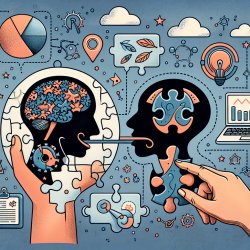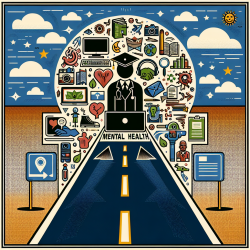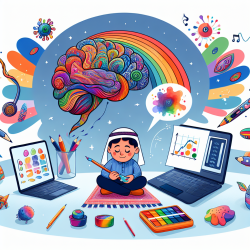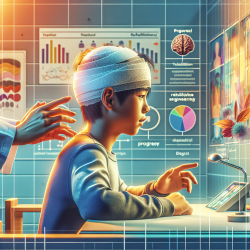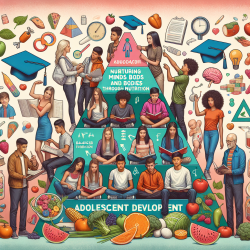Introduction
The relationship between cognition and adaptive behavior in individuals with intellectual and developmental disabilities (IDD) is a critical area of research that holds significant implications for practitioners. A recent study titled "Developmental associations between cognition and adaptive behavior in intellectual and developmental disability" offers valuable insights into how these domains interact over time. This blog aims to translate these findings into practical strategies for practitioners, emphasizing the importance of data-driven decisions in enhancing outcomes for children with IDD.
Understanding the Study
The study examined the developmental changes in cognition and adaptive behavior in a sample of children, adolescents, and young adults with IDD over a two-year period. Using the NIH Toolbox Cognition Battery (NIHTB-CB) and the Vineland Adaptive Behavior Scales-3 (VABS-3), the researchers explored how changes in cognitive domains like fluid and crystallized cognition relate to adaptive behavior domains such as communication, daily living skills (DLS), and socialization.
Key Findings
One of the pivotal findings of the study was the positive association between improvements in crystallized cognition and enhancements in daily living skills. This suggests that interventions targeting cognitive skills could potentially lead to meaningful improvements in adaptive behaviors, particularly in daily living skills. Moreover, the study found that baseline cognitive levels could predict growth in adaptive behavior, although the reverse was not true.
Implications for Practitioners
For practitioners, these findings underscore the importance of integrating cognitive assessments into treatment plans for children with IDD. By utilizing tools like the NIHTB-CB, practitioners can identify specific cognitive areas that, when targeted, may yield improvements in adaptive behaviors. Here are some practical steps practitioners can take:
- Incorporate Cognitive Assessments: Regularly assess cognitive skills using standardized tools to monitor progress and tailor interventions.
- Focus on Daily Living Skills: Given the study's findings, prioritize interventions that enhance daily living skills, as these are closely linked to cognitive improvements.
- Data-Driven Interventions: Use data from cognitive assessments to inform and adjust treatment strategies, ensuring they are evidence-based and targeted.
Encouraging Further Research
While the study provides valuable insights, it also highlights the need for further research to explore the causal relationships between cognition and adaptive behavior. Practitioners are encouraged to engage in or support research efforts that aim to deepen our understanding of these domains. By contributing to the body of evidence, practitioners can help refine interventions and improve outcomes for children with IDD.
Conclusion
The study on developmental associations between cognition and adaptive behavior in IDD offers a promising avenue for enhancing therapeutic outcomes. By leveraging data-driven insights, practitioners can develop more effective interventions that address the unique needs of children with IDD. For those interested in exploring the original research, please follow this link: Developmental associations between cognition and adaptive behavior in intellectual and developmental disability.
